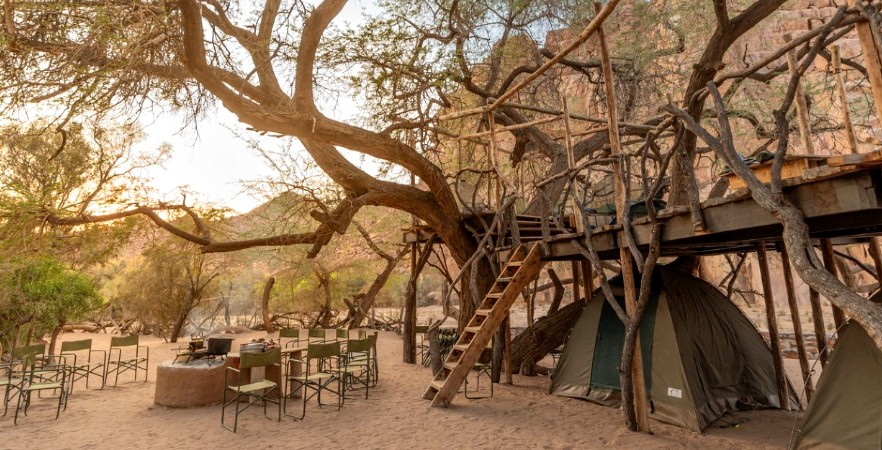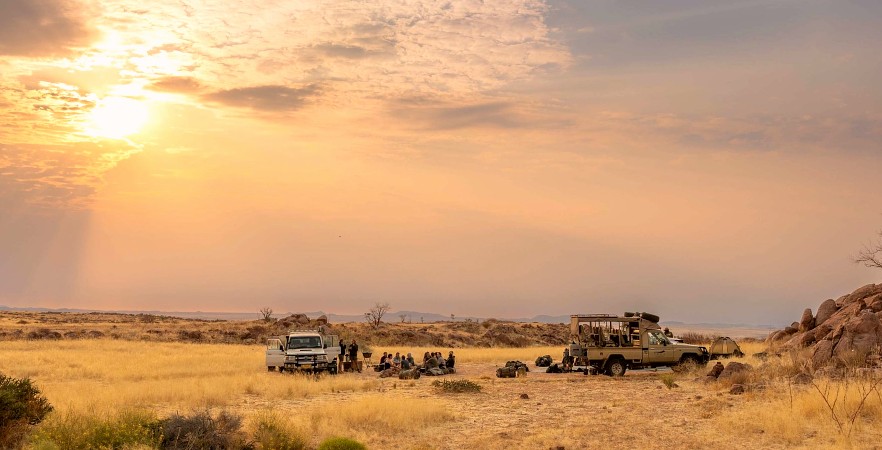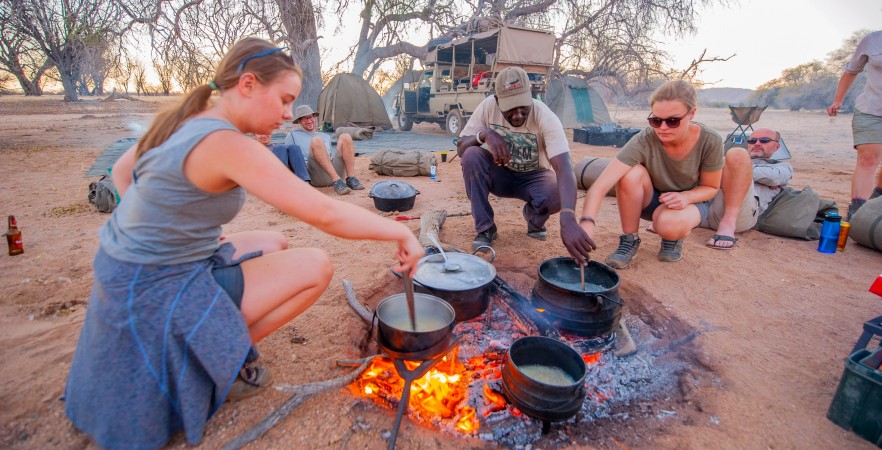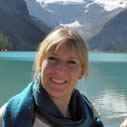Desert Elephant Conservation
Namibia
Our award winning African conservation team work to help protect and research desert elephants in Namibia.
Volunteers build walls to protect farmers’ water points and construct drinking points for the elephants to reduce the conflict between people and elephants. The project team conducts vital research by tracking and recording data on the local elephant population. The aim is to develop a greater understanding of the elephant herds as well as creating a positive relationship between community and desert elephants, enabling them to live together in harmony.
Camp out under the stars and experience life in the beautiful Namibian desert.
Help the Desert Elephant Conservation team protect these beautiful elephants’ futures.
Key Info
View More Photos View VideoProject Information
Volunteer role: What will I be doing?
Volunteers are part of the Desert Elephant Conservation team who strive to create a positive relationship between the subsistence farmers and desert elephants in the harsh Namib Desert.
The volunteer role is based in the stunning Namibian desert and rotates weekly, the first role is based at a community building project and the second focuses on researching the wild elephants in the desert.
Community building
In this area of Namibia the natural water table has fallen due to increased human use and droughts. Consequently elephants are increasingly relying on drinking from man-made water points, and often cause damage to farms when searching for water.
During the first week, the team work with the farmers to help reduce the conflict between the elephants and the farmers by building protective walls around their water points, or constructing new water points for elephants away from the farms.
Volunteers are taught traditional building skills and can help:
- Digging foundations
- Collecting rocks
- Mixing cement
- Building walls
- Maintenance and repairs of previous projects
Elephant research
The research role gives volunteers the opportunity to learn how to track elephants and assist the research staff in monitoring the movements of elephants in the region. On the elephant tracking drive volunteers join the local team in the 4x4 vehicle driving along the desert and river looking for signs that elephants have been in the area recently.
Volunteers may assist the research team in:
- Recording elephant movement patterns using GPS positions
- Compiling and updating the herds’ identification notes
- Documenting new births, deaths and other important events such as mating
- Collecting elephant dung for DNA sampling
- Noting any issues relating to the elephants’ health and well-being
During these drives the team may spot other African wildlife including rare black rhinos, giraffe, zebra, springbok, ostrich, oryx and kudu. This is also a great area of bird enthusiasts with some beautiful birds including hornbills, love birds, Egyptian geese, rollers, eagles and even pearl spotted owls. You can learn more about the elephants and the project here.
Typical day
You will arrive into the historic coastal city of Swakopmund on the Sunday, this gives you time to relax after your journey and explore. You will meet the team in the evening and be given an induction to the project. On the Monday morning you will travel with the group to the base camp, which is a 4 hour journey into the desert.
While on the community building role volunteers generally work between 9am-12pm and 2pm-5pm, with a two hour lunch break in between.
While on the elephant research and tracking role, after breakfast, the team follow and monitor elephants, stopping for lunch before normally setting up a new camp location in the late afternoon.
You can learn more about the volunteer schedule here. You can spend your free time relaxing and taking part in some of the amazing free time activities that Namibia has to offer.
Other volunteers
There are usually 5-8 volunteers (with a maximum of 14), numbers vary throughout the year.
Duke of Edinburgh’s (DofE) award
This placement has been approved by the DofE as meeting the requirements for the Residential section of the Gold Award.
Local support
You will be working alongside the local team at the project which is made up of local and international staff.
“The project could not function without the volunteer teams helping the special desert elephants. The volunteers can see the difference their hard work and effort immediately makes.” Rachel, Manager
Accommodation
On your arrival and departure nights, you will stay in the historic coastal city of Swakopmund. You will need to book your own accommodation in Swakopmund, there are many choices from simple backpackers to luxury hotels and we will provide recommendations. Volunteers who stay for more than 2 weeks will need to book their own accommodation in Swakopmund on Friday to Sunday at the end of each 2 week programme.
After heading into the desert, a 4 hour drive from Swakopmund, you will reach Base Camp. It’s a unique setting, camping on a tree platform, with stunning sunsets and even the occasional elephant passing by.
This project allows volunteers the rare opportunity to appreciate the simple things in life and truly get back to basics, camping in the open air under magnificent African night skies.
The first and last night of each two week rotation is spent at Base Camp. You will also return to Base Camp between Building and Elephant Tracking weeks for your free time. Base camp includes a kitchen area, toilets and hot showers.

During Build weeks, you will be camping at one location, close to the build site. On Elephant Tracking weeks, you will sleep in a different place each night as you track the elephants through the desert. You will stay at a basic camp site in the desert. There is a simple dug toilet and no shower facilities.

There is no electricity at the camp sites but volunteers can charge their electronics and access the internet in Swakopmund.
Volunteers joining for more than 2 weeks will be transferred back to Swakopmund every alternate weekend for 3 nights, before they return to the desert.

Meals
Meals are included and the team of volunteers take it in turns to prepare the meals over the camp fire. Here are typical examples of the food you will have:
- Breakfast – porridge, toast, tea and coffee
- Lunch – sandwiches, pasta, salad
- Dinner – spaghetti, thai curry, fried rice, stew + the famous apple pie!
Vegetarian and vegan options can be provided.
Drinking water is provided at the placement.
When in Swakopmund, there are many restaurants and cafes to choose from.
Getting there
You will need to fly into Walvis Bay Airport (WVB) or Windhoek Airport (WDH).
On arrival, we can arrange a transfer to Swakopmund where you will meet the team. You will stay in Swakopmund for one night, before travelling to the base camp with the team, approximately 4 hours drive into the desert.
Location and free time
The project is located in the Namib Desert, traditionally knowns as Damaraland. It is a beautiful rural location with desert, rivers and rocky hills and mountains. It is a perfect location for evening star watching since there is no light pollution!
During the weekend between the building and elephant tracking camp, volunteers can visit the nearby town which has a café, swimming pool and internet access, restaurant and small supermarket.

When you are in Swakopmund city, you can arrange trips to explore the sand dunes, relax at one of the many cafes or visit the seal colony along the Skeleton coast. These activities should be booked in when you arrive in Swakopmund.
Climate
The desert location of the project means it can get quite hot, with average temperatures between 20-35˚C. At the project base, there are two main seasons. The summer season runs from November to April with January to March having occasional rain. The winter season runs from May to October, where it can get down to between 5-15˚C at night.
Swakopmund city has a mild desert climate with temperatures between 10-25˚C. On average in Swakopmund, the warmest month is February and the coolest month is August.
Travelling in Namibia before or after your placement
Namibia is next door to South Africa and is an extraordinary destination distinguished by dramatic desert landscapes and endless horizons. It has been described as “Africa for beginners” and a brilliant place to see African wildlife including elephants, rhino and cheetah. Popular activities in Namibia that you may like to combine with your project include:
- Taking a safari drive around Etosha National Park
- Exploring the sand dunes by the Skeleton coast
- Kayaking among hundreds of seals at the Pelican Point seal colony
For more information on Namibia and some of the things we loved when we visited there please see our Namibia country page.

Arrival & Departure
- Start day (day to arrive in Swakopmund): Sunday, see available start dates below
- Departure day (from Swakopmund): Saturday
Durations
You can volunteer at this project for: 2 weeks, 4 weeks, 6 weeks, 8 weeks, 10 weeks, 12 weeks.
2 week trips are 13 nights long, with 2 nights in Swakopmund (arrival and departure nights). You will need to book your own accommodation for these 2 nights.
For 4-12 week trips, every 2 weeks, volunteers return to Swakopmund on the Friday. You will need to book your own accommodation for the weekend (Friday, Saturday and Sunday) before heading back to Base Camp on Monday to continue your volunteer adventure!
Start dates
2025: 5 Jan, 19 Jan, 2 Feb, 16 Feb, 2 Mar, 16 Mar, 30 Mar, 13 Apr, 27 Apr, 11 May, 25 May, 8 Jun, 22 Jun, 6 Jul, 20 Jul, 3 Aug, 17 Aug, 31 Aug, 14 Sep, 28 Sep, 12 Oct, 26 Oct, 9 Nov, 23 Nov, 7 Dec
2026: 4 Jan, 18 Jan, 1 Feb, 15 Feb, 1 Mar, 15 Mar, 29 Mar, 12 Apr, 26 Apr, 10 May, 24 May, 7 Jun, 21 Jun, 5 Jul, 19 Jul, 2 Aug, 16 Aug, 30 Aug, 13 Sep, 27 Sep, 11 Oct, 25 Oct, 8 Nov, 22 Nov, 6 Dec
What's Included
Included
- Dedicated Pod Volunteer specialist to support you from booking on until you complete your trip
- Comprehensive trip planning guide
- Transfers between Swakopmund and the desert base camp
- Accommodation - open air camping
- Food - all meals when at base camp and in the desert
- Induction and training
- Support from the team onsite in Namibia
- 24/7 emergency support from the Pod Volunteer UK team
- Donation to Pod Environmental Fund tackling climate change
- 100% payment protection through ABTOT
- Volunteering certificate and reference (on request)
Not included
- Flights
- Transfers to / from Swakopmund from the airport (we can arrange this for you, it costs 350-620 Namibian dollars per person depending on arrival airport)
- Travel insurance
- Vaccinations
- Hotel accommodation in Swakopmund on arrival and departure nights
- If doing 4 weeks or longer at the project - weekend accommodation in Swakopmund on alternate weekends
- Living costs - Swakopmund meals, snacks, drinks, laundry
- Any tourist trips / activities you choose to do in your free time
Price table
| 2 weeks | £1195 | GB Pounds |
| 4 weeks | £1995 | GB Pounds |
| 6 weeks | £2695 | GB Pounds |
| Extra 2 weeks | £595 | GB Pounds |
Discounts
- £50 discount if you have previously volunteered with Pod Volunteer
Where the money goes - financial transparency
Your fee covers the overseas costs of volunteering and the costs of running our organisation in the UK, on a non-profit basis. For more details and a breakdown of our costs please click here.
Book with confidence - financial protection
All monies paid to us are financially protected through The Association of Bonded Travel Organisers Trust Limited (ABTOT).
Fees in currencies other than GBP are indicative only and volunteers are invoiced in GBP. For current exchange rates please see www.xe.com
Read volunteer reviews from the Desert Elephant Conservation project
Jody
"It was all a fantastic experience. The full team at the project were really knowledgeable and they were also great fun. All the volunteers in my group got along fantastically. We worked well and hard together; everyone could be depended upon to pull their weight with the work and we had fun doing it. I loved sleeping outside, cooking over the fire on both build week and tracking week.
The most rewarding thing was helping a group of conservationists make a positive impact. And the other volunteers I met. Truly love these people."
Eleonore
“It definitely went above and beyond my expectations! The open landscapes, the wildlife, sleeping under the stars are experiences you will rarely find anywhere else, Namibia is truly a jewel! The staff are there to help, listen, teach and a great time is always guaranteed! And of course being able to see elephants in their wildest state and having the chance to see them where no one else can is truly unique!
Building walls, the most important part of the project, is really rewarding because you realise your help as a volunteer is truly important for the farmers and villages. It is really rewarding to know you were able to add your stone.”
Tomas
"One of the best experiences I have ever had. At the beginning I was not too sure what to expect. The volunteering group explain things very well and are always ready to help when necessary.
The build week can be physically testing but is very rewarding at the end when you see the difference you have made and the impact that will have in people's lives.
The patrol week was amazing, getting the opportunity to see elephants roaming free and so much more wildlife. The people I met there were definitely one of the highlights. We really bonded well as a group and made friends that will last into the future."
Santiago
"Our experience was fantastic and we would like to repeat it again. The project in Namibia is a well-managed organisation, with good professionals, and very nice human beings. The work they do to solve the conflict is outstanding, and we felt privileged for being able to help and make a little contribution.
The volunteering was a powerful experience to value what it matters, learn about yourself, and understand how other people live. Moreover, Namibia was very welcoming. Its nature was incredible; the colours, sunsets, mountains, desert, animals, etc. People was generally friendly and we felt safe. Without a doubt, one of the best experiences of our lives."

24/7 support
Gemma and the Pod UK team are here to help you throughout your trip
Reserve your place and start your volunteering adventure to Namibia!
BOOK NOWSIMILAR PROJECTS
Here are other popular projects you may be interested in











